Overview
There are many companies on the internet that help small businesses with loans in these trying times. These business lenders are set up in such a way that the assessment and approval of applicants are straightforward and transparent. Therefore, you, as a small business owner in need of a loan, can get the type of loan that best suits your business. This article is my list of the best small business loan providers.
There are many types of loans with different metrics for consideration, so I can’t rank them using only one factor.
These companies are unique in what they offer: some of them lend directly, others are places where you can review lending companies. While some give loans, others give you alternatives to funding like credit lines, SBA loans, and invoice factoring. And while some are flexible in their requirements, others are strict.
This guide is to help you choose the right company for your business.
1. Lendio
Best overall for small businesses
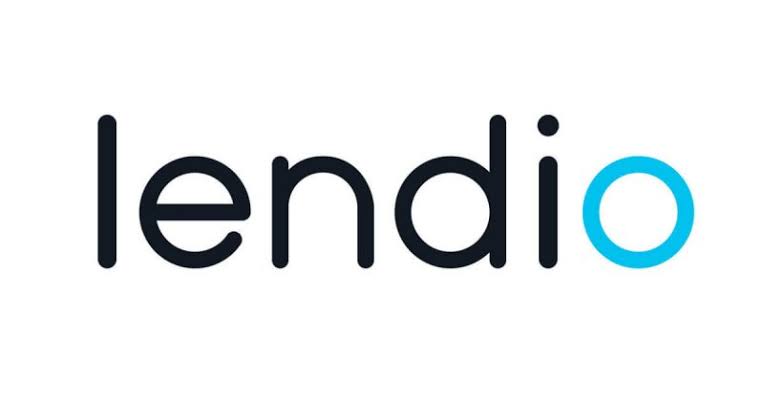
This is undoubtedly one of the best small business loan providers in the US. Lendio has over 300 business lenders, the highest loan options, and has helped more businesses get loans than any other company in 2020.
Unlike other lending marketplaces, Lendio gives you a questionnaire that would help you find the best lender for your business using its sophisticated program. This questionnaire is the only requirement for getting a loan, and it only about 15 minutes.
Pros
- Its modern algorithm matches you with the best lender
- It only takes about 15 minutes to get a match and be approved
- Lendio covers virtually all types of business loans
Cons
- The requirements for a loan vary by loan type and lender
- It’s not all the partnering loan providers that offer excellent terms
2. Torro
Best for alternative funding

Torro is a lending company that offers alternative funding. It is interested in businesses that are in their planning stages and businesses that need urgent bridge loans. Torro’s system of funding allows you to apply for a loan digitally as it has a lot of investors. If your application is approved, you can get the funding that same day.
Although Torro’s website does not have all this detailed information, it has a 4.7-star rating according to experts, and that’s why I strongly recommend it. People who have gotten loans from Torro find it helpful because of its quick funding.
Pros
- Torro accepts new businesses with no revenue
- The platform’s proprietary funding pattern makes the process faster
- It’s possible to receive the funds within the same day
Cons
- Its website does not provide detailed information
- It does not display its loan rates before you submit an application
3. Fundera
Best for microloans and SBA 504
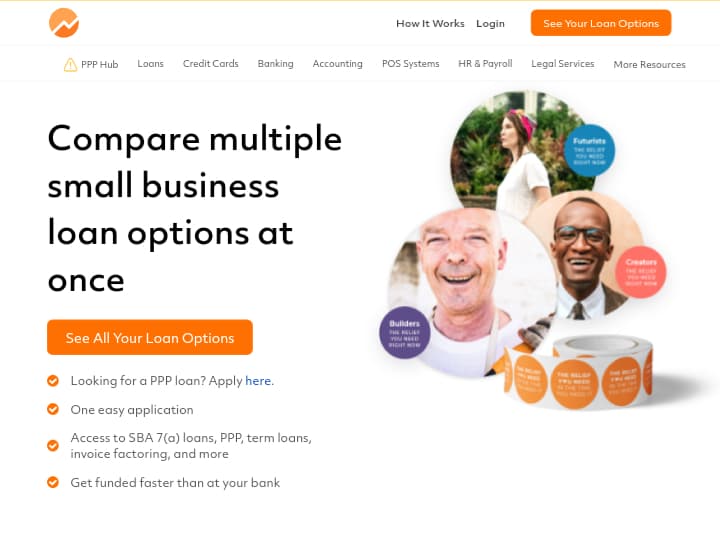
Fundera is a more personal place, as it encourages its users to return for more loans. It also has some useful resources. For example, Fundera assigns you to a loan expert who guides you through the whole process of obtaining the loan.
Pros
- The necessary information is uploaded from QuickBooks to your application
- Fundera has an eligibility tracker for previously ineligible borrowers
- It has practical and free how-to resources
Cons
- That you have been pre-qualified does not guarantee that your loan application will be approved
- Its lender fees and terms vary greatly
4. Fundbox
Best for low credit

As one of the best small business loan providers, Fundbox provides lines of credit. And instead of requesting that you fill out an application form, it syncs with your bank account or your accounting software. If the Fundbox software is satisfied with your account, you’ll get your approval within minutes.
In addition to being simple and straightforward, its loan application is excellent for businesses with low credit. This is because Fundbox has one of the lowest minimum credit score requirements in the industry.
Additionally, the other borrower requirements of this company are easy and low too. You are eligible to apply after just two months in business, and with only $50,000 in annual revenue, you can qualify for a loan.
Although Fundbox’s financing products are costly, its accessibility makes it an excellent choice for businesses that are unable to qualify for low-interest term loans.
Pros
- Automated application
- Low approval requirements
- Fast funding
Cons
- Low maximum loan amounts
- High APR
5. BlueVine
Best for larger cash flow loans
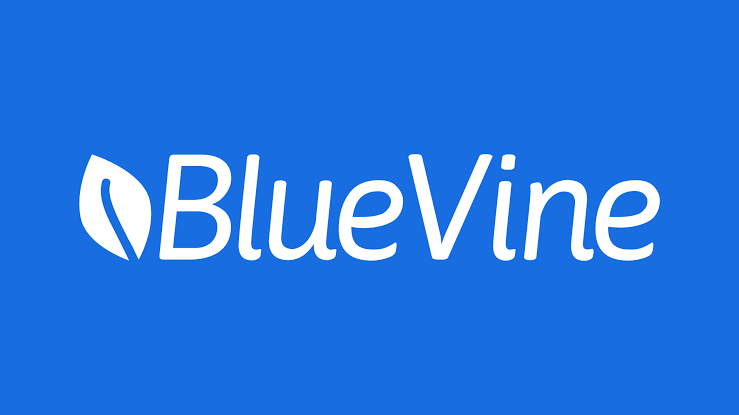
BlueVine offers two types of funding options: invoice factoring and lines of credit. Though both are great options, BlueVine is unique because of its invoice factoring option. Besides having a fast and easy application process, BlueVine provides invoice financing up to $5 million.
With invoice financing, you can use your invoices as collateral for the loan you want to take. This collateral makes it easier to qualify for these loans than other funding types. Also, it means that only B2B businesses usually qualify for these loans.
BlueVine equally has simple requirements for application. You just need to have $120,000 in annual revenue, be three months in business, and have a 530 credit score.
And while you might not qualify for that full $5 million if you have only the minimum qualifications, BlueVine makes it easier to get larger loans.
Pros
- Simple, quick process
- Low credit score requirements
- Large loans available
Cons
- Limited availability in some states
- Potentially large fees
6. Funding Circle
Best for peer-to-peer lending

Funding Circle is a peer-to-peer (P2P) lending platform. Therefore it really connects you to lenders instead of lending directly to you. As a borrower, you’d probably not notice the difference. This is because you still have to apply, get the loan, and make monthly payments through Funding Circle. Usually, Funding Circle’s P2P model means that it provides reasonable rates on term loans if you can qualify.
Funding Circle has one of the strictest application requirements of the companies on this list. It requires that you must be at least two years in business, for example. However, it also offers some of the lowest rates. Additionally, Funding Circle is one of the few lending platforms that let you make monthly payments instead of daily or weekly.
All these make Funding Circle one of the best small business loan providers.
Pros
- Up-front cost and fee information
- Low starting rates
- Excellent customer service
Cons
- Exclusive borrower preferences
- Secured loans only
7. Kabbage
Best for convenience
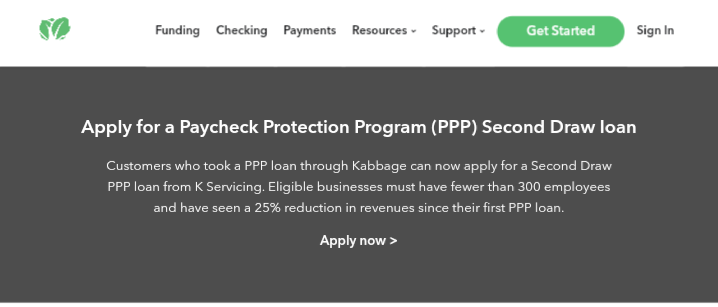
Kabbage only provides lines of credit. Just like Fundbox, it has an automated application process that only needs a connection with your bank account. Therefore, you can get a reply to your application in minutes. This makes Kabbage one of the best small business loan providers.
However, the application is only the first thing. After you’ve been approved, Kabbage allows you to access your line of credit through PayPal, your bank account, or a credit card. With PayPal, you can get access to your loan in minutes.
So although this company has high loan rates, it is convenient, and this makes it excellent for business owners that are in need of quick, accessible working capital.
Pros
- Easy, no-obligation application process
- Relatively simple minimum lending requirements.
- Innovative, ‘customer links’ available for new invoices.
- Very low minimums on 6-month loans ($500).
- Customers can apply on the phone.
Cons
- Unclear pre-payment policy
- Relatively new company
8. OnDeck
Best for repeat borrowing

If your business requires that you’ll be taking out several loans over the next few years, then you should consider OnDeck. It provides incentives such as low rates and reduced fees to its repeat customers. Therefore, the more you borrow, the more you can receive better deals.
Fortunately, most of the customers of OnDeck give wonderful reviews. So you will have a great time as you borrow.
You have to also understand that OnDeck has stricter application requirements than the other lenders on my list. This means that new businesses should not apply.
Pros
- Borrower qualifications are lower than with banks
- Multiple types of financing available
- Lower costs for repeat customers
- The application process is fast and easy
- Funds are disbursed quickly
- Builds business credit
Cons
- Financing isn’t available in some states.
- Not available to businesses in some industries
- Rates can be expensive
9. Accion
Best for startup loans
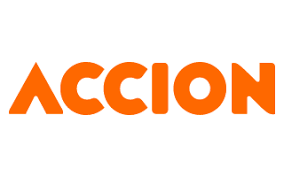
Accion is one of the best small business loan providers. This is because it aims to understand your business and its uniqueness. Therefore, although Accion will go through your credit history and your annual revenue, its application process allows you to explain why your business deserves funding.
There are some things to note, however: Accion has a longer application process than any of the best small business loan providers. Also, if you want a huge loan, Accion might not be your best choice. Although it provides loans up to $250,000, most of its loans are closer to $15,000.
Pros
- Startup businesses may qualify.
- Depending on the region, loans as small as $300 and as large as $1 million are available
Cons
- Loans have terms of 24 months.
- Prequalification is not available
10. Lendr
Best for non-loan financing

This company only provides non-loan types of working capital. These include invoice factoring and merchant cash advances. These are the types of funding that come with increased costs and shorter loan repayment terms than standard loans.
However, they also have low credit requirements. This makes them an excellent option for some businesses. Lendr is also a better working capital provider than most of the best small business loan providers. It has excellent customer reviews and simple borrower requirements.
Pros
- Multiple financing options
- Specializes in financing restaurants
- It is ready to work with newer businesses and business owners with low credit scores
- Easy application process
- Fast approval turnaround
Cons
- Repayment rates are not clear
Frequently Asked Questions
1. What you need to know about business loans
It’s common for businesses to need loans to cover a range of business expenses. It is necessary to know about the types of loans and other important information before going for a loan.
Lending companies offer different loan options for businesses depending on the reason for the loan and how much they can guarantee the loan repayment.
If you are going for a secured loan, then you need to have collateral which you have to forfeit if you do not pay the loan in full.
On the other hand, unsecured loans are given to businesses that have established a loan repayment record. This type of loan may have lower interest rates than secured loans.
2. Business loan types and what they are best for
- Secured loans: best for companies that have properties to use as collateral
- Unsecured loans: best for improving your credit score
- Line credit: best for current working capital expenses
- Merchant cash: best for good credit and low risk
- Accounts receivable: best for outstanding invoices and short term debts
- Equipment loans: best for purchasing the necessary equipment for running a business
- Construction loans: best for expansion or new facility
- Invoice factoring: best for filling the gap in cash flow
Every type of loan has a definite payment structure, term length, and interest rate. Some of them are more difficult to qualify for than others, and most of them require you to present detailed paperwork and documents when applying.
3. How to apply for a small business loan
Before you apply for a loan, know what documents your business lender requires. Some of the required documents include:
Personal background: This is a guarantee paid by anyone who owes more than 20%.
Business plan: This is a document that explains what the business is all about.
Business background: This lists out the members of the company’s management and their qualifications.
Financial statements: This also includes personal and business financial statements.
4. Benefits of an online small business loan
Business loans are important opportunities for the growth and expansion of your business. If used appropriately, they will help your business in the long run.
Five reasons why you can take a business loan include:
1) Expand your location or open a new one
This is necessary if you have a physical location for your business. At some point, you’ll want to expand or change your location for more growth. This is similar to an online store: while your website might be useful in getting new customers, there will be a point where you’ll need to upgrade and add new features to your site.
2) To build credit for future loans
The rate of your personal credit can significantly influence your business loan and the terms therein. If your personal credit is excellent, business lenders will readily offer you better loan terms. Therefore, if you take a business loan, it will provide you with the opportunity to get a good loan credit when you repay according to your loan terms.
3) To finance equipment
This is a common reason for taking business loans—to acquire fixed assets. This kind of loan is different from general business loans because they are financed by an equipment-financing company and are used only for procuring equipment. The collateral here is the purchased equipment.
4) To fund new inventory
The term “inventory” means your business’s raw materials and products. This type of loan is suitable for one-time purchases, although the line of credit is usually flexible to enable purchases at other times.
5) To recruit new talent
A lot of businesses start as one or two people-operated businesses. However, when your business expands, you’ll have to employ more help. And paying workers is both necessary and expensive.
A business loan can help you pay your employees till your business gains traction, and you can now pay your workers from the business earnings. This type of loan works best if you employ workers on a seasonal basis. For instance, during festive periods where you need more hands to attend to customers, you can take a loan to pay the workers.
5. Online business loans vs. Bank loans: Which is suitable for your small business?
Generally, obtaining a loan from a bank drags on for a long time. You have to go to the bank personally with lots of documents and wait as the bank considers your application. This takes a lot of precious time.
Online loan companies use financial technology to automate the process.
Pros of Online Business Loans
- Simple application process
- Quick response
- Flexible requirements
- Unsecured loans
- Small, short-term loans
- Government-assisted loans (for some lenders)
- Loans for low credit
Cons of Online Business Loans
- They do not have a Low APR
- Not regulated by an independent authority
Pros of Traditional Bank Loans
- Low APR
- Regulated by an independent authority
- Government-assisted loans
Cons of Traditional Bank Loans
- The application process is very complicated
- Poor customer service
- They don’t have flexible requirements
- They don’t offer unsecured loans
- They’re not suitable for small, short-term loans
- They’re not good for loans for low credit
6. How much can I borrow?
If you are looking to borrow a large sum, then banks are better than online loan companies. Banks are better at giving larger loan sums than online companies, so far as you qualify for the loan. However, if you want a smaller amount, then online providers are best for you as they have greater flexibility than traditional banks.
7. What are the loan requirements?
Banks are stricter than online lenders when it comes to the requirements for a loan. This makes it harder for small businesses and startups to procure loans from banks. This is where online lenders are better.
8. How much credit do I need?
It is harder for small businesses to get good credit ratings from bank loans. But online loan providers consider other factors and are more likely to overlook that aspect.
9. How easy is the application process?
Taking loans from banks is a long and complicated process. You have to appear in person and give reasons for the loan application.
Banks also demand more documents and require a 100% collateral agreement of the loan amount. This is unlike online providers, where within minutes, you can apply for a loan.
10. How secure is the process?
When it comes to security, banks are better because they are regulated by the government. This protects the customers and their collaterals.
With online providers, this is not the case and makes them a risky venture. These providers have to be certified by certain agencies before they can be trusted by small businesses.
Summary
The best small business loan providers are more popular these days because of the ease with which businesses can obtain loans. And banks see small businesses as too risky to finance with loans; this is especially harder for online businesses without a physical location or other traditional business revenue system.
However, with the best small business loan providers, you can readily apply by answering some questions while banks tend to take you through a long and tedious process. And once your application has been approved, you’ll receive the loan within days, unlike banks that take weeks and months.
